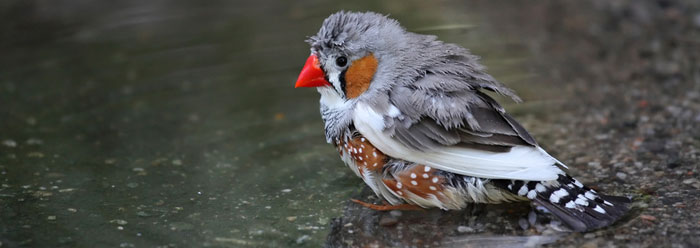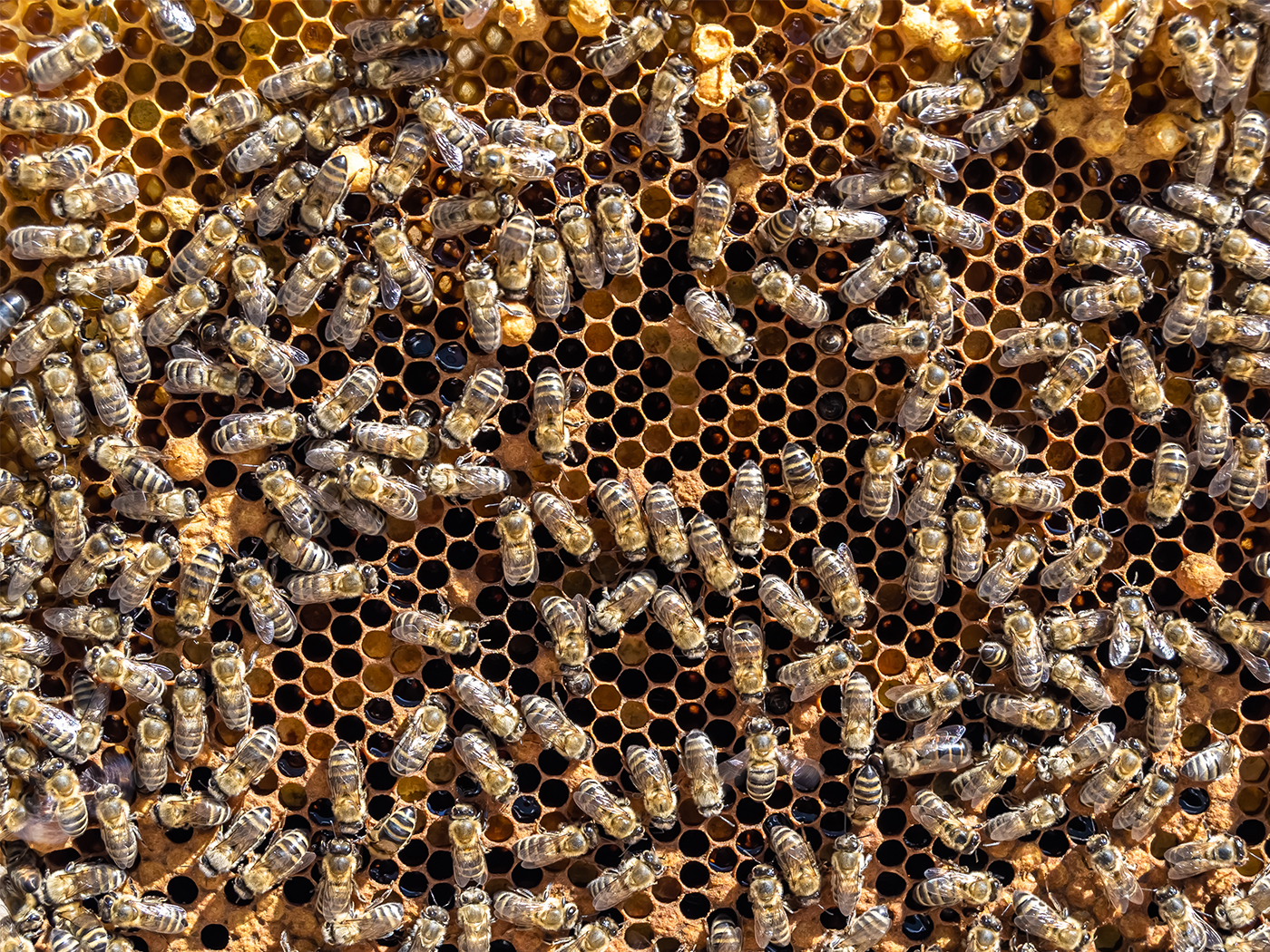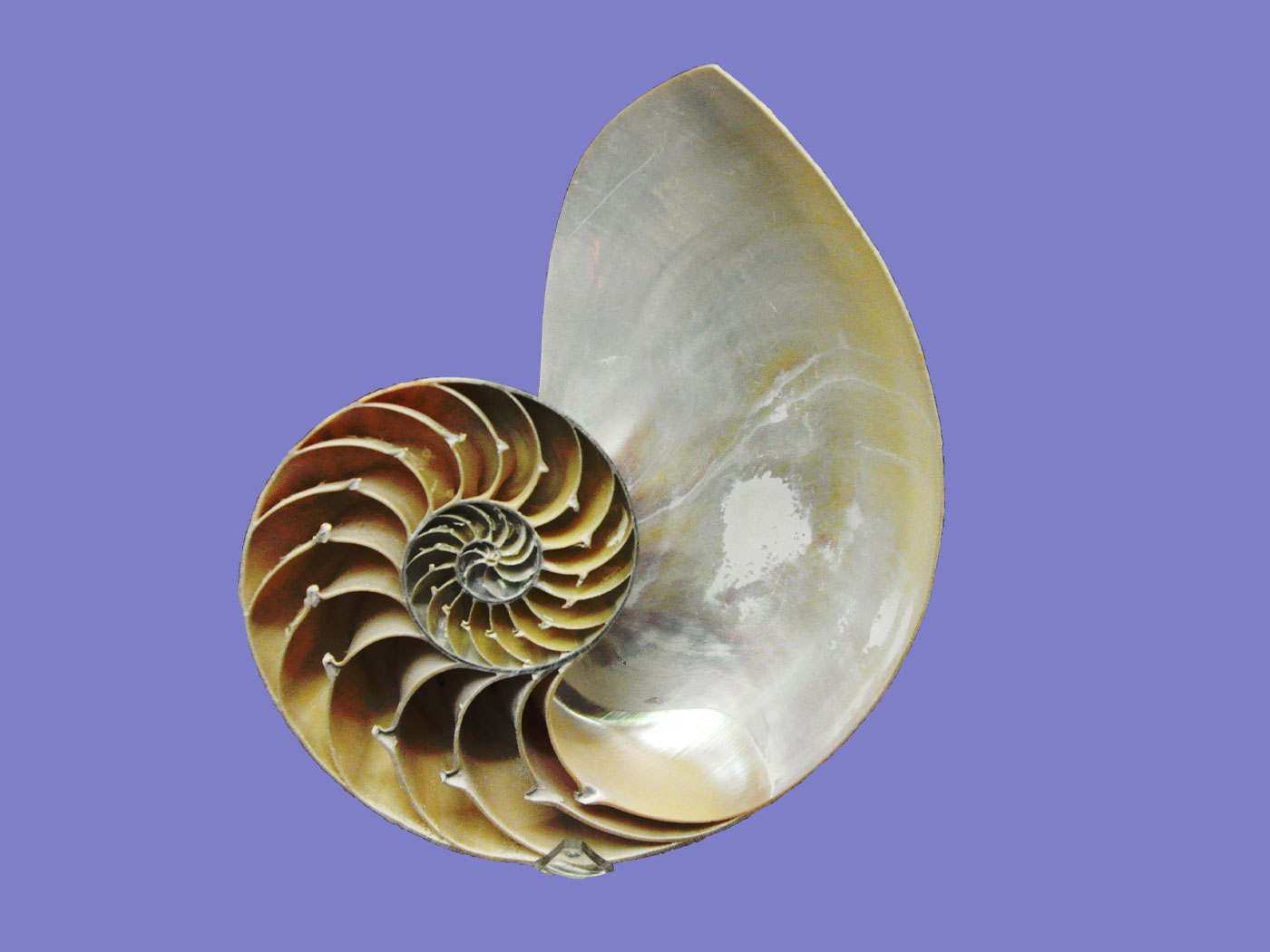Humans are in rare company when it comes to singing duets. Humpback whales perform original couples' songs, as do a handful of birds. It was thought that bird duets were just for mating purposes, but a study on zebra finches has opened a new window on bird behavior.
A male finch sings to females while courting, but then quiets down after finding his mate. According to evolution, finches have no reason to continue to communicate at that point, since they've already ensured that their genes will be passed on to a new generation. Thus, researchers were surprised to find that wild zebra finches sing to each other only after becoming a couple.
Zebra finches are active and colorful birds from Australia, and they choose a mate for life. When researchers placed a microphone near zebra finch nests, they discovered quieter, private, synchronized vocalizations between the male and female finches inside. The research appears in the European journal Animal Behaviour.1
Clementine Vignal, an evolutionary biologist and the senior author of the study, told Wired Science, "Most of these studies have focused on display behaviors that characterize pair formation or mate choice--all these processes that interest people working on the evolutionary aspect of sexual selection. We forgot to think about what was going on after pair formation."2
Since the time of Charles Darwin, sexual selection has been invoked to explain why males have traits that females do not. Supposedly, males evolve unique traits that help win a female, thus ensuring successful propagation of the "fit." But because there isn't an objective means to discern whether or not any given trait "arose" through sexual selection, natural selection, by accident, or by some other unknown mechanism, debates are endemic in discussions of the nature of sexual selection.
In addition to the confusion over how selection may work, the odds that any form of selection can produce complicated all-or-nothing, well-fitted parts are slim. And with more parts that are even more specified in their fitted arrangements, the odds approach zero.
For male finches to sing their songs, they have to have a fully-formed system of pulmonary tubing, valves, musculature, and integrated skeletal structures. Then, the larynx (many birds have two) has to be located near the mouth and properly "wired" to the correct areas of the brain. All of that would still be useless, however, without the instinctive knowledge required to compose a song, or without the females' ears being tuned to their specific tones. To consider this seamless array of parts as a product of just nature is imaginative--not scientific.
If anything, these research results and comments provide an example of the evolutionary bias that has hindered scientific investigation. With their provincial perspective on "come hither" bird traits such as showy plumage and creative singing, evolutionists would not expect birds to expend their energy and resources on vocalizing after their mates had already been secured.
There is no good evolutionary reason why finches should dialogue in duets after becoming mates. So perhaps the birds communicate for non-evolutionary reasons. Vignal told Wired Science, "They have emotions....We can imagine that this duet expresses some kind of emotion."2
Or maybe they simply enjoy each other's voices, just as their Creator enjoys hearing them.3
References
- Elie, J. E. et al. Vocal communication at the nest between mates in wild zebra finches: a private vocal duet? Animal Behavior. Published online before print July 24, 2010.
- Keim, B. Finch Duets About More Than Getting the Girl. Wired Science. Posted on wired.com August 9, 2010, accessed August 10, 2010.
- A 2008 study showed brain chemistry patterns indicating that zebra finch males enjoy vocalizing for females. Huang, Y-C. and N. A. Hessler. 2008. Social Modulation during Songbird Courtship Potentiates Midbrain Dopaminergic Neurons. PLoS ONE. 3 (10): e3281.
* Mr. Thomas is Science Writer at the Institute for Creation Research.
Article posted on August 13, 2010.

























